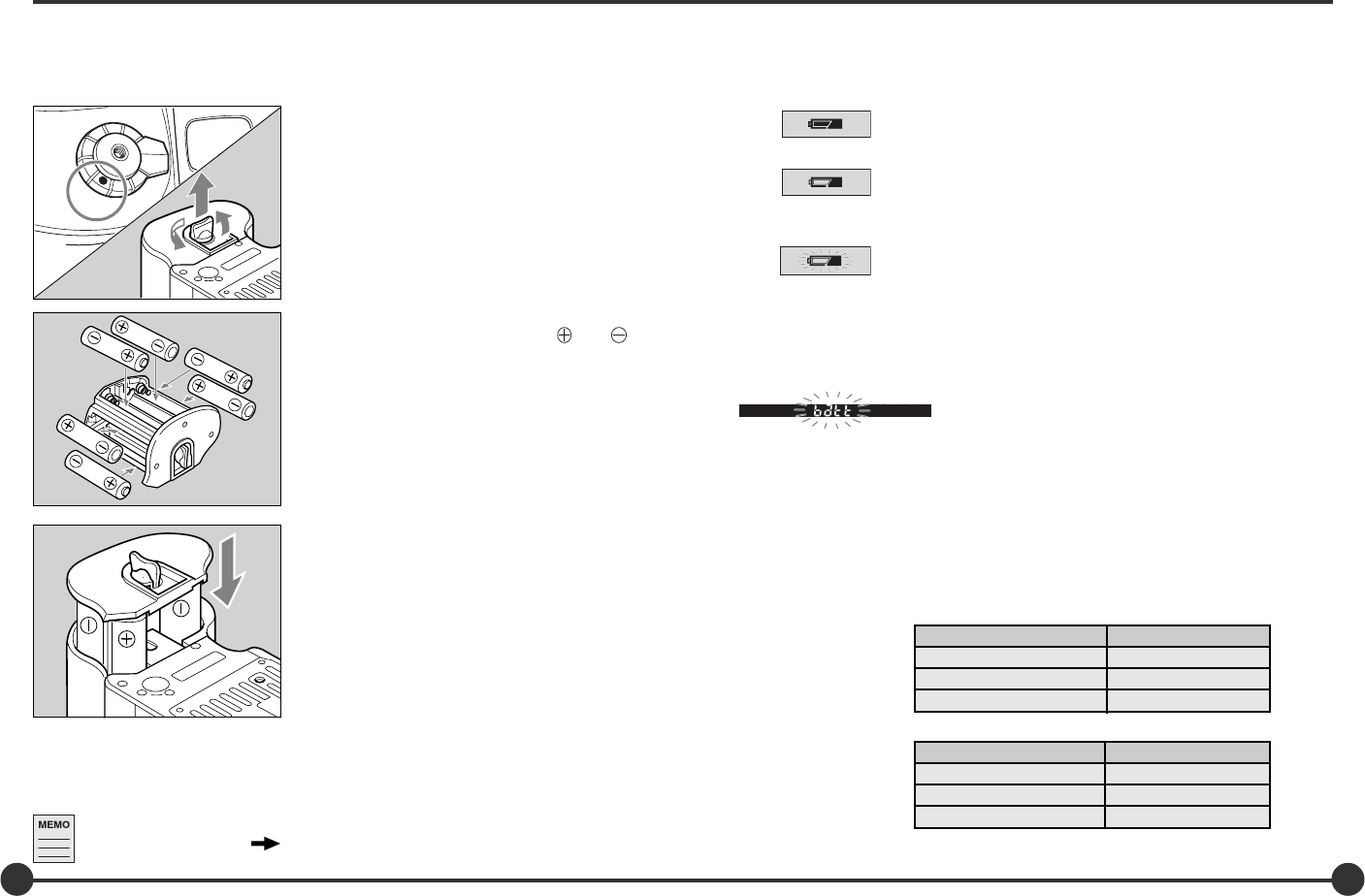
Checking the Battery Power
Set the drive dial to “S” to turn on the power.
Check the battery condition in the lower right corner of the main LCD.
When replacing the batteries, be sure to use six new batteries of the same type. Do
not mix different types of batteries or old batteries with new ones.
The batteries are sufficiently charged.
There is little power remaining. Have new batteries on hand.
Camera will still operate.
There is very little power remaining. Camera will stop
operating soon.
Number of rolls that can be exposed with a new set of batteries
(under our test conditions)
At normal temperature (20˚C) (68˚F)
Flashing
Flashing
11 12
Set the drive dial to “L” to turn off the power.
Use six “AA” alkaline or lithium batteries.
1. Lift the battery case lock lever, turn it counter
clockwise and pull out the battery holder.
2. Install the batteries while ensuring their po-
larities are properly aligned with the and
markings on the battery case.
3. Return the battery holder to its case and lock it
by turning the lever clockwise. Make sure it is
firmly attached.
Be sure the batteries are placed with proper
polarity
Inserting the Batteries ( )
After inserting the batteries, set the date and time. (See page 23.)
Rechargeable nickel-metal hydride (Ni-MH) or nickel-cadmium (Ni-Cd)
batteries can be used. Custom settings (C-07 on page 93)
Set the shutter release mode selector lever to “L”
(to turn the power off) and replace the batteries with
new ones.
When the batteries are spent, “batt” flashes on the
main LCD and the viewfinder's LCD when the shut-
ter release button is pressed.
10˚C (14˚F)
Alkaline battery
Approx. 150
Approx. 130
Approx. 18 hours
120 type film
220 type film
Bulb time
Alkaline battery
Approx. 25
Approx. 25
Approx. 8 hours
120 type film
220 type film
Bulb time
The camera will not operate
without batteries
C
S
L


















